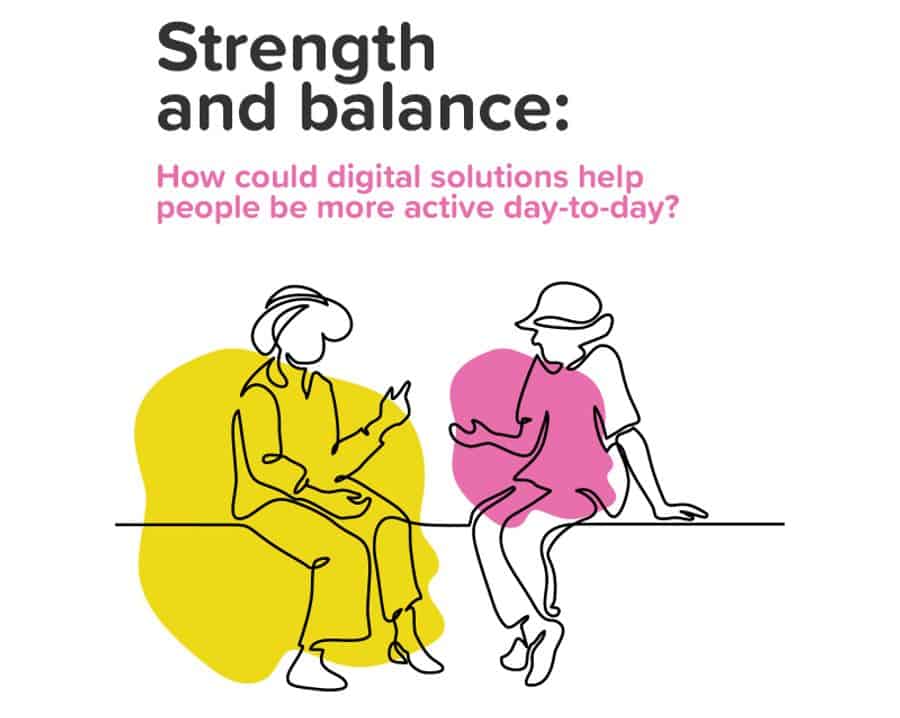Rethink Partners and North East Essex CCG report highlights frailty epidemic in older adults

A new report published by Rethink Partners and NHS North East Essex Clinical (NEE) Commissioning Group has highlighted the risk of frailty to older adults following social isolation and lack of strength and balance activity during the pandemic.
Findings from the report discovered that a lack of access to strength and conditioning activities throughout the pandemic could have the potential to cause a long-lasting increase in falls and frailty amongst the over 70s.
Residents in Colchester, Essex and surrounding areas, including those in sheltered housing and residential homes across North Essex, took part in a six-month project initially commissioned to understand and highlight the benefits of using technology to help strength and balance in older adults.
During the engagement, participants described both their physical and social ‘deconditioning’ due to the loss of communal space during the pandemic, compounding the motivational challenge to engage in strength and balance activity.
The findings, which have been published in a Strength and Balance Playbook, produced by Rethink Partners in association with NHS NEE and the Prevention and Enablement Model (PEM) Programme Board, highlight a clear need to work not only on physical exercise, but on reintegrating with society following severe social isolation caused by the pandemic.
Designed for anyone who is planning, designing or delivering digital care services for strength and balance, the playbook reviews how digital tools can help people be more active in their everyday lives. reviews latest research and resources and summarises the findings.
The playbook also explores behaviour change models and how digital solutions could help in the future, with useful links to strength and balance work outs – provided by NHS England and others.
According to a report published by Public Health England in 2021, the average duration of strength and balance work decreased from 126 to 77 minutes a week between March and May 2020 compared with the corresponding period in 2019 – and this pattern still doesn’t seem to have fully recovered.
Older people experienced a considerable reduction in strength and balance activity between March to May 2020, with the greatest change in the 70 to 74 age group with a 45 per cent (males) and 49 per cent (females) decrease observed in activity.
Without mitigation, modelling predicts that 110,000 more older people are projected to have at least one fall per year as a result of reduced strength and balance activity during the pandemic
It also found that for each year that the lower levels of strength and balance activity observed during the pandemic persist, there is projected to be an additional cost to the health and social care system as a result of the change in predicted related falls of £211 million (incurred over a two and half year period).
Last year, a study found that loss of mobility and falls in elderly people and not being able to get up or get help were key concerns for adults with parents aged 75 or over.


